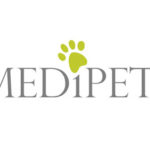Welcome to the official website of Vet Hospital Port Shepstone, where you can get all the relevant information on who we are and the products and services we offer to our clients and their pets.
Testimonials
More about Vet Hospital Port Shepstone
- Vet Hospital Port Shepstone offers an extensive range of veterinary-related services at the hospital. We cater for most pets, including dogs, cats and other small pet mammals, parrots, pet snakes, pet lizards, pet monkeys, rabbits, hamsters, rats and mice. Read more
- Our animal hospital is equipped with a friendly reception and vet shop front area, a consultation room, patient preparation area, fully equipped theatre, plenty of ICU and hospital cages, a pet incubator, a laboratory area, specialised animal pharmacy, an admin office, a courtyard for larger temporary patients, an animal bath and a washing room. Our animal hospital also has radiography and extensive laboratory facilities. Read more
- Our dedicated veterinary team consists of a registered veterinarian, Dr Renier Delport, his personal assistant Charmaine, our reception and sale assistant lady, Gail and our nurse, Veronica. Read more
- Vet Hospital Port Shepstone is proud to present our on-site vet shop, which offers an extensive range of pet products such as pet accessories, antiseptics, collars and leads, dental health products, dewormers, grooming products, healthy dental-friendly treats, herbal and natural products, self help pet products, shampoos, supplements and vitamins, tick and flea treatments and pet friendly toys. Read more
- Vet Hospital Port Shepstone is bound to rules and regulations, not only to protect the hospital’s internal operations and to make us function more smoothly, but also to protect the interest of our patients, clients and staff and to enable us to give a better service. Read more
- We are a privately owned veterinary hospital, registered with the SAVC. We have no affiliation with the SPCA or the state veterinary department. This institute is not subsidised by any means other than our own internal operational funding. Read more
Here you can also find information on our primary healthcare solutions such as cat and dog sterilisations, cat and dog vaccinations, pet dental health, microchipping, tick and flea control and pet health insurance. You can also find our latest blog entries and information articles.
Share our website
We stock, and can supply, the following brands of pet food:
= phone to order = online orders only
Telephonic enquiries welcomed.
Latest articles




















Please comment
Comment via Facebook